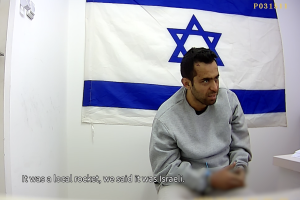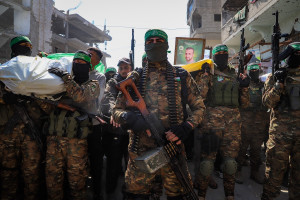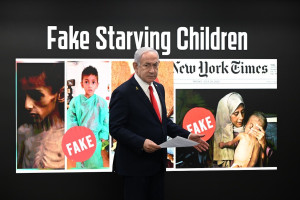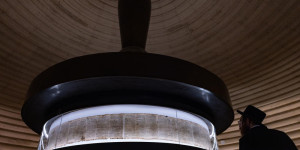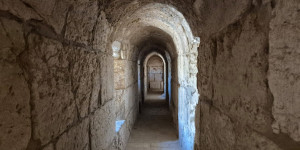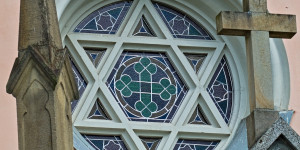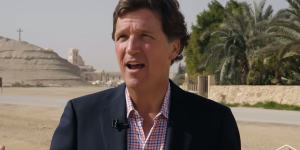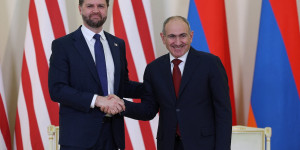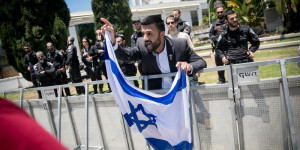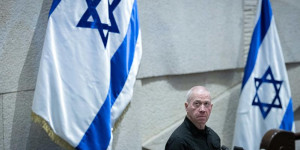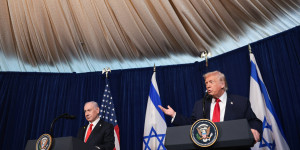New journalism fellowship launched to combat misrepresentation of Israel in media
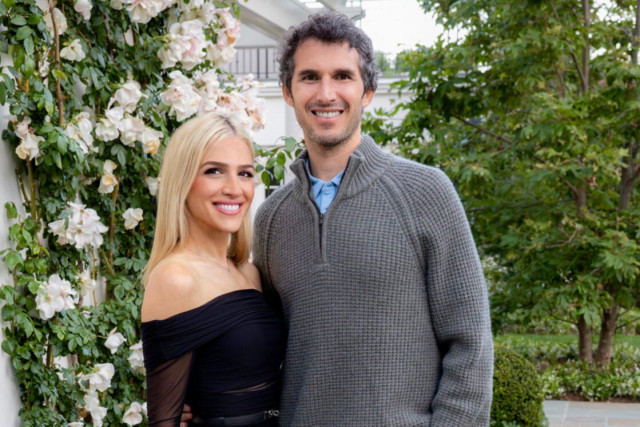
Jeff and Jacki Karsh have launched the Karsh Journalism Fellowship, offering in-depth support and training for ten early- to mid-career journalists to promote integrity and accuracy in reporting on Israel and Jewish-related issues. The program is offered in partnership with the Jewish Federation Los Angeles.
It was the false reporting about the bombing of the Al-Ahli Hospital in the first month of the war that was the real wake-up call for the couple. Global media immediately parroted the Hamas claim that the IDF had bombed a hospital, killing 500, when the very next day it was established that the rocket had actually been fired by Islamic Jihad from within Gaza, landing in the car park, and killing one-tenth of the number estimated by the local Hamas-led Health Ministry. The corrections went almost entirely unnoticed, with the BBC network's Jeremy Bowen even admitting he did not regret his false report.
“The story was reported incorrectly and then the correction was so muted, it was not like, ‘Wow! We just completely messed up this story,’” Jeff Karsh told eJewish Philanthropy.
“I was thinking, if there had been one person in that newsroom who had stood up and said, ‘We need to wait. We cannot rush into this – this will have an impact if we don’t verify.’ They were getting more information from the terrorists who were responsible for Oct. 7. If we even just wait 24 hours – which, I know, in news is a lifetime – so even a few hours until the smoke clears… but there was nobody that really stood up.”
Karsh emphasized the seriousness of these errors, saying, “It had already affected how everyone perceived the war. When numbers come from a Ministry of Health run by Hamas, whether that’s done deliberately or not, it influences how people perceive the story – and it can even shape policies.”
In an analysis of media sources, the Henry Jackson Society (HJS) discovered that 98% of media outlets used figures from the Gaza Health Ministry, almost all without scrutiny, but that only 3% relied on figures from the IDF in the same way.
The HJS report demonstrated the many ways that the Hamas figures had been manipulated, yet swallowed whole by the world’s media. It found the proportion of men, women, and children killed had been skewed, with the vast majority (72%) being fighting-age men, not women and children as Hamas claimed. Following the report’s publication, the terror group quietly shaved 3,400 casualties off their own estimates.
More recently, images of emaciated patients and critically ill children have been deceptively used by Hamas as evidence of widespread starvation and published by most major news outlets. In a rare press conference with the global media, the Israeli Prime Minister Benjamin Netanyahu told the world they had been tricked, saying, “The only ones being deliberately starved are our hostages.”
With the high demand for immediate news, journalists may lack the depth of knowledge to report accurately at speed, passing on misinformation without taking the time to check, far too often.
“This is a pivotal moment to invest in rigorous journalism on Jewish issues,” Karsh told eJewish Philanthropy as she described their new program.
Participants in the fellowship will receive mentoring by professionals from a range of ideologies, including from The New Yorker, The Atlantic, The New York Times, The Spectator and ATTN. They will also attend intensive retreats in diverse locations throughout the United States. The first-of-its-kind program will tackle subjects such as, “The Myth of Jewish Media Control,” “How to Cover Antisemitism,” and “Middle East Misinformation.”
Jacki Karsh graduated with a master’s degree in Broadcast Journalism from Columbia University and is a six-time Emmy-nominated multimedia journalist. She also serves as a board member of the Jewish Federation Los Angeles, and has written for the Jewish News Syndicate and the Times of Israel.
Karsh has also won awards for her contribution to the media landscape, including the "Communicator of the Year" Award from New York Women in Communications.
“A lot of journalism today has been hijacked by activism. What was once a straightforward news piece has turned into something else entirely,” said Karsh.
“We want journalists to understand the impact that their reporting has on Jewish issues and Israel, and how that, in turn, affects the global Jewish population – and to understand the power of the pen or broadcast,” she explained. “We’re hoping they understand the power of even a five-word comment. It can change everything.”
The initiative has been welcomed by Rabbi Noah Farkas, CEO of Jewish Federation Los Angeles. His enthusiasm for the vision led to the invitation of Rob Eshman, former editor-in-chief of the Jewish Journal and national editor of The Forward (now a senior columnist), to serve as the fellowship’s director.
“This fellowship is designed for working journalists who want a deeper understanding of complex, controversial issues,” Eshman said. “We are building a program that will help build careers.”
The Jacki and Jeff Karsh Journalism Fellowship program will launch in January 2026. Enrollment for the fellowship closes on Sept. 15, 2025.

Jo Elizabeth has a great interest in politics and cultural developments, studying Social Policy for her first degree and gaining a Masters in Jewish Philosophy from Haifa University, but she loves to write about the Bible and its primary subject, the God of Israel. As a writer, Jo spends her time between the UK and Jerusalem, Israel.
You might also like to read this:


